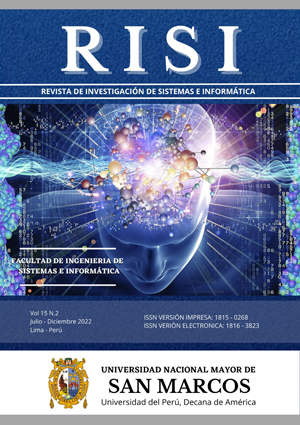Digital transformation in Law
DOI:
https://doi.org/10.15381/risi.v15i2.24423Keywords:
Digital transformation, technologization, digitization, technologization of justiceAbstract
The irruption of information technology, especially the Internet, has led to the legal profession being in a stage of important transformations, allowing the simplification of many of the daily activities in which data is considered as a production factor as important as physical capital or human, from which it is inferred that legal professionals who adapt and take advantage of big data will become more competitive where equity and possession of these will become as important as the value of the brand itself, at the same time that it is an imperative requirement to reflect on the most appropriate legal framework for the requirements, taking into consideration that we are dealing with very sensitive information of which it is an obligation, both ethical and legal, to make responsible use. The use of technology and data provides professionals with the opportunity to be much more efficient and have more time to devote to issues related to knowledge and work teams. The Digital Transformation process in law firms and for companies that offer Professional Services in law refers to the application of digital techniques, methods, tools and strategies in each of the work and operation processes. It should not be considered an option, but rather an imperative requirement to innovate by adapting to digitization in an effort to remain competitive.
Downloads
Downloads
Published
Issue
Section
License
Copyright (c) 2022 Mario Huapaya Chumpitaz, Grace Antonella Cortez Chistama, Fiorella Katherine Cortez Chistama, Ronald Ulises García Conde

This work is licensed under a Creative Commons Attribution 4.0 International License.
AUTHORS RETAIN THEIR RIGHTS:
a. Authors retain their trade mark rights and patent, and also on any process or procedure described in the article.
b. Authors retain their right to share, copy, distribute, perform and publicly communicate their article (eg, to place their article in an institutional repository or publish it in a book), with an acknowledgment of its initial publication in the Revista de investigación de Sistemas e Informática.
c. Authors retain theirs right to make a subsequent publication of their work, to use the article or any part thereof (eg a compilation of his papers, lecture notes, thesis, or a book), always indicating its initial publication in the Revista de investigación de Sistemas e Informática (the originator of the work, journal, volume, number and date).


